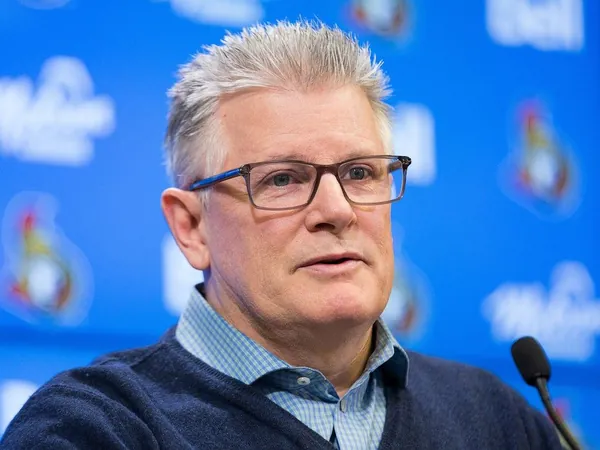
Marc Crawford Resigns as ZSC Lions Head Coach, Prioritizing Mental Health
2024-12-30
Author: Amelia
Introduction
In a heartfelt statement released through the ZSC Lions' official website, Marc Crawford announced his resignation as the head coach, emphasizing his ongoing commitment to mental health. The former Vancouver Canucks coach disclosed, "For the last several months, I have been investing in intensive therapy with the hope of understanding the depths of my own mental health."
Crawford’s Decision
The resignation comes at a time when the ZSC Lions, currently the reigning champions of the Swiss National League, were performing impressively with a 22-5-2 record, placing them at the top of the standings. Despite the Lions' success this season, Crawford noted that he could no longer provide the full commitment required as a leader. Team manager Sven Leuenberger expressed deep respect for Crawford's courageous decision, stating that it was a source of sorrow for both Crawford and the organization.
Crawford’s Coaching Career
Crawford's coaching career spans several decades and includes significant achievements. At 63 years old, he was in the third season of his second tenure with the Lions, having previously coached the team from 2012-2016. He is well-remembered for his time with the Vancouver Canucks from 1999 to 2006, where he guided the team during the famed West Coast Express era and is the second-winningest coach in franchise history with 246 regular-season victories.
Achievements and Legacy
Notably, Crawford also led the Colorado Avalanche to a Stanley Cup victory in 1996 and was the head coach of the Canadian Olympic team during the 1998 Nagano Winter Games. Over his extensive career, he has also coached teams such as the Los Angeles Kings, Dallas Stars, and Ottawa Senators, accumulating a total of 556 wins, making him one of the top coaches in NHL history.
Challenges and Scrutiny
Crawford's resignation is not without its challenges; he faced scrutiny over the years, including a recent investigation while serving as an assistant coach with the Chicago Blackhawks concerning allegations of abusive behavior. The Blackhawks confirmed during their inquiry that Crawford sought counseling to improve his communication and coaching methods.
Conclusion
As he steps away, Crawford's focus on mental health highlights a growing awareness and discussion surrounding mental well-being in sports, paving the way for other athletes and coaches to prioritize their health. His journey serves as an important reminder of the necessity for self-care in the high-pressure arena of professional sports.



 Brasil (PT)
Brasil (PT)
 Canada (EN)
Canada (EN)
 Chile (ES)
Chile (ES)
 Česko (CS)
Česko (CS)
 대한민국 (KO)
대한민국 (KO)
 España (ES)
España (ES)
 France (FR)
France (FR)
 Hong Kong (EN)
Hong Kong (EN)
 Italia (IT)
Italia (IT)
 日本 (JA)
日本 (JA)
 Magyarország (HU)
Magyarország (HU)
 Norge (NO)
Norge (NO)
 Polska (PL)
Polska (PL)
 Schweiz (DE)
Schweiz (DE)
 Singapore (EN)
Singapore (EN)
 Sverige (SV)
Sverige (SV)
 Suomi (FI)
Suomi (FI)
 Türkiye (TR)
Türkiye (TR)
 الإمارات العربية المتحدة (AR)
الإمارات العربية المتحدة (AR)